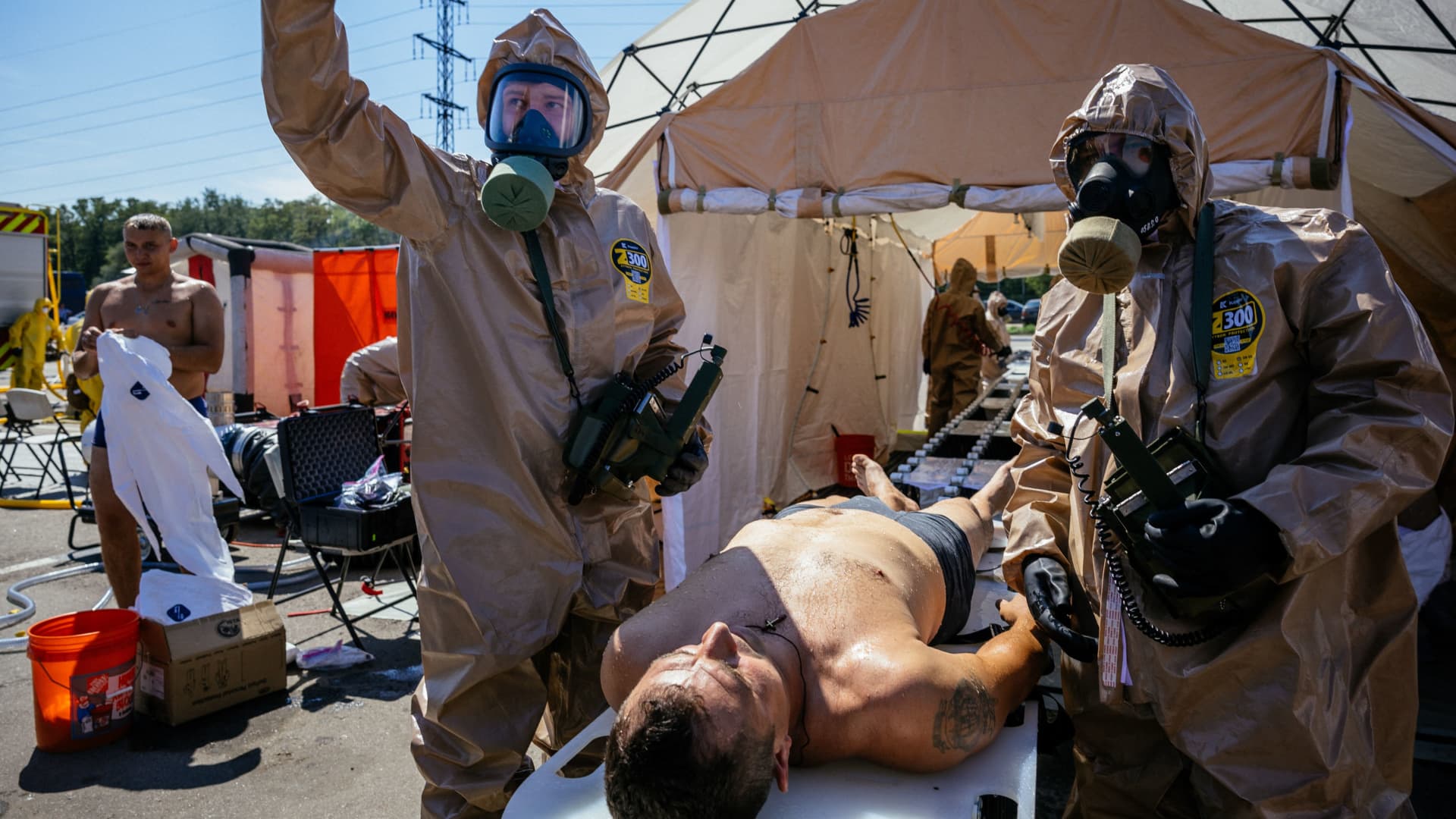Trump says he will declare national energy emergency, revoke electric vehicle ‘mandate’


President Donald Trump said Monday that he will declare a national energy emergency, part of a sweeping agenda that aims to increase fossil fuel production, end what he called the “Green New Deal,” and withdraw the U.S. from international commitments to fight climate change.
“The inflation crisis was caused by massive overspending and escalating energy prices and that is why today I will also declare a national energy emergency. We will drill, baby, drill,” Trump said in his inaugural address.
Trump vowed to end what he called the “Green New Deal,” likely a reference to support for clean energy under the Inflation Reduction Act. He also promised to revoke what he called the electric vehicle “mandate.”
The president will also withdraw the U.S. from the Paris climate agreement, according to a document issued by the White House Monday. The Paris agreement is a landmark international treaty that seeks to limit rising global temperatures to 1.5 degrees Celsius.
The national energy emergency “will unlock unlock a variety of different authorities” to produce more natural resources, a White House official told reporters, without providing specifics on which authorities Trump will use. The president has promised to slash energy costs in half within the first year of his administration.
“The national energy emergency is crucial because we are in an AI race with China, and our ability to produce domestic American energy is so crucial such that we can generate the electricity and power that’s needed to stay at the global forefront of technology,” the official told reporters.
Trump is also set to sign an executive order specifically to unleash energy production Alaska, the official said, without providing specifics.
“Alaska is so key for our national security, given its geostrategic location, and it’s a crucial place from which we could export LNG not only to other parts of the United States, but to our friends and allies in the Asia Pacific region,” the official said.
The U.S. has been the largest producer of crude oil in the world for years, outpacing Saudi Arabia and Russia. The CEOs of Exxon and Chevron have said oil and gas production levels are based on market conditions and are unlikely to increase significantly in response to who is in the White House.
“There’s still some upside,” Chevron CEO Mike Wirth told CNBC’s Brian Sullivan in a Jan. 8 interview. “But probably not growth at the rate that we’ve seen over the last number of years as particularly some of these new shale plays begin to mature,” Wirth said.
Exxon CEO Darren Woods told CNBC that U.S. shale production has not faced “external restrictions” under the Biden administration.
“Certainly we wouldn’t see a change based on a political change but more on an economic environment,” Woods said in a Nov. 1 interview prior to Trump’s election victory. “I don’t think there’s anybody out there that’s developing a business strategy to respond to a political agenda,” he said.
There are areas in the Gulf of Mexico that have not opened up due to federal permitting, Woods said at the time. The Biden administration had planned the fewest oil and gas leases sales in history in a five-year program that runs through 2029.
“That could, for the longer term, open up potential sources of supply,” Woods said of increasing lease sales.
There are several emergency statutes Trump could invoke to increase gasoline and electricity supplies, said Glenn Schwartz, director of energy policy at the consulting firm Rapidan Energy. Emergencies are often loosely defined under federal law, giving the president broad discretion to use them as he sees fit, Schwartz said.
And Trump would likely face little pushback from the courts because they are reluctant to challenge presidential determinations related to national security, Schwartz said.
“What you end up with is that even if Trump were to expand his emergency powers in unprecedented ways, it is not clear that courts would step in to halt any of these resulting actions,” the analyst said.
However, there is little the president can do to force more oil and gas production, Schwartz said.
“You can lead a horse to water, but you can’t make them drink,” the analyst said. “He can give them all the resources they need to be able to drill, but I haven’t seen anything that suggests he can force them to take it out of the ground.”
This post has been syndicated from a third-party source. View the original article here.




